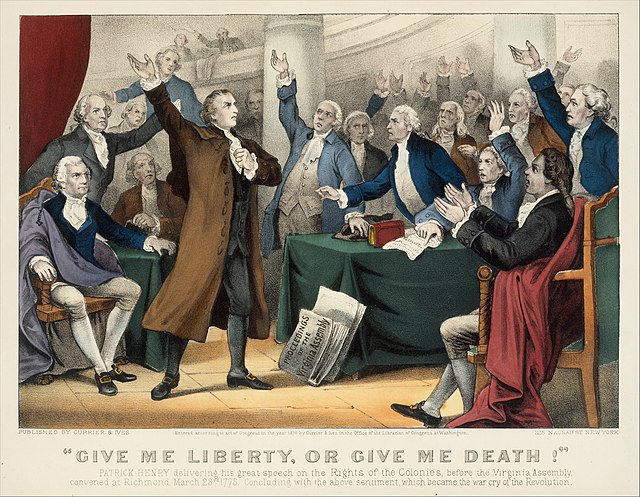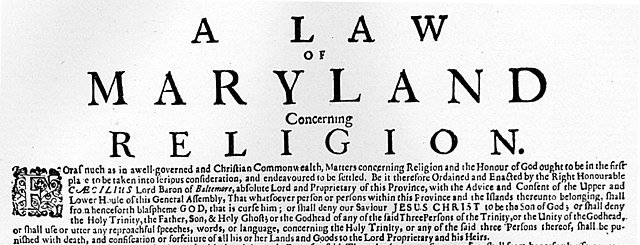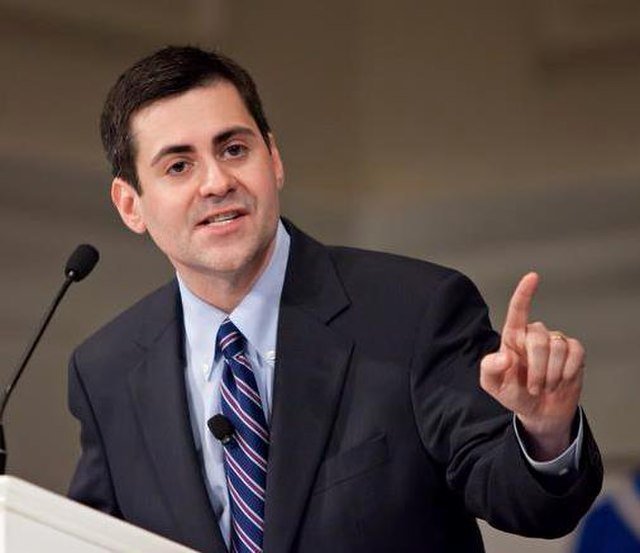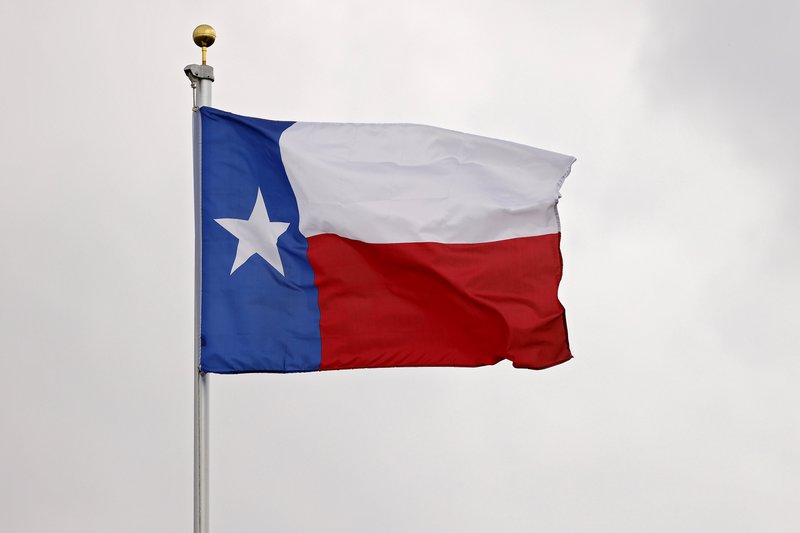Religious liberty has been foundational to America’s origin story. From Maryland’s Act of Toleration in 1649, which granted religious freedom to Christians, to John Locke’s A Letter Concerning Toleration in 1689, which influenced early American leaders like Thomas Jefferson and James Madison, to numerous events in between, the concept is deeply rooted in our history.
I will not attempt to pinpoint its precise origin, as far more qualified historians have already done so. Instead, I highlight these early examples to affirm that religious liberty has been ingrained in the formation of our nation from the beginning. Although notably, early writings on this topic primarily were addressed in a Christian context and my intended readership is the same.

Patrick Henry, a Virginian, lifelong Anglican, and ratifier of the United States Constitution, articulated this well in The Trumpet Voice of Freedom:
It cannot be emphasized too strongly or too often that this great nation was founded, not by religionists, but by Christians, not on religions, but on the gospel of Jesus Christ. For this very reason, peoples of other faiths have been afforded asylum, prosperity, and freedom of worship here. – Patrick Henry
Religious liberty is so deeply embedded in our ethos that questioning any aspect of it risks being labeled un-American. Yet, in a land of free speech, no topic should be off-limits. We must pay close attention to discussions that are stifled before they begin. Given the sensitive nature of religious liberty, particularly within my tradition as a Reformed Baptist, I must clarify what I ask you as the reader to consider.
Religious liberty in and of itself, is not a biblical concept, it is a philosophical one with political implications. Whatever one might feel about its necessity is a topic for another article. I merely mean to have the reader recognize it does not hold the same level of authority as the Word of God.

It is also worth noting, the purpose of this article is not to advocate for the abolition of religious freedom - defined as an individual right to believe without fear of persecution. Only that, no matter where Christians fall on the necessity of “religious liberty” to exist, we do not have the freedom to use it as the basis for supporting false gods and their high places to exist. Yet, I suspect some who read only this article will assume otherwise. As the saying goes, you can lead a horse to water...
A Christian’s primary duty and allegiance is to Jesus Christ, manifested through obedience to Scripture. When a political ideal, law, or government decree contradicts scriptural teachings, we must reject it. We must have no other gods before Yahweh (Exodus 20:1-3) and that certainly includes the state.
If a law or ideal, while not inherently contradictory to Scripture, in its application causes Christians to act—wittingly or unwittingly—in ways contrary to Scripture, we must repent of it and correct that error. This article focuses on this latter point. Most Christians would likely agree with this statement, perhaps even with an “Amen.” It is logically and theologically consistent.
However, when asked to apply it, many who agree in theory may experience cognitive dissonance, prompting them to quickly jump in a car and blast Carrie Underwood’s “Jesus, Take the Wheel” as loud as Cesar’s noise compliance laws will allow as a remedy. The error lies not in our orthodoxy, but in our orthopraxy; if we get this wrong, we risk forgetting our heritage and jeopardizing the inheritance of future generations.
No recent event illustrates this better than the government overreach during COVID-19. Civil magistrates mandated and local authorities enforced church closures for the supposed greater good while deeming liquor stores and marijuana dispensaries essential, allowing them to remain open.
The church faced numerous issues during this period, and we should thank God for revealing them. Perhaps the greatest revelation was seeing Christian leaders readily comply with government orders without assessing whether they violated a Christian’s duty to worship or the precedent they set for future generations.

Some, like Russell Moore, former President of the Ethics & Religious Liberty Commission of the Southern Baptist Convention, the largest Protestant denomination in America, equated taking the vaccine with Christ’s command to love our neighbor. He wrote in the Wall Street Journal:
“And, at the same time, we can express our love for neighbor—especially the sick and elderly—by reducing the chance that we might inadvertently pass along a virus that could kill them. The men on the rooftop took a risk of, at best, looking like fools or, at worst, falling through an unstable roof. But they loved their friend and wanted to get him to Jesus. We don’t need to make ropes or tear up roof tiles to love our friends and neighbors. All we are asked to do is to get a shot.” – Dr. Russell Moore
As stated earlier, we should thank and praise God for exposing major issues within the church that lay hidden just below the surface. Without COVID-19 mandates exposing them, their harm would likely be more devastating today. This light provides an opportunity to address them, and faithful Christians have a duty to do so.
If ever there was a time for Christians to stand firm, using religious liberty as an anchor, it was during government-ordered church shutdowns. Yet, many Christians’ committed to this principle wavered when it mattered most—a truth few religious institutions or leaders willingly acknowledge and the most outspoken leaders championing the government mandate have by in large been unwilling to repent for it.
While the COVID tyrannies are currently dormant, another battle awaits, forcing us once again to consider to what extent we are to be committed to the ideal of religious liberty.
The great state of Texas, which I call home, is considered the buckle of the Bible belt. Due to its size and well-known reputation of evangelical presence it can be safely assumed as being the state with the highest number of protestant churches in the United States.
Yet, despite that reputation, the planned Islamic community known as EPIC City is found in Josephine, Texas. And if you have followed this story, you have seen the debate between evangelicals and some are advocating for the cities right to proceed with construction. Robert Smith, a minister in the Evangelical Lutheran Church makes the argument it is unfair to single out the Muslim community.

“Why should our neighbors be put at risk? Why should children suffer?” Smith said. “Leaders must act with greater care and concern for all of us, we the people. Instead of stoking fear and division, true leaders create bridges toward a common future.”
Christians must not promote or support the construction of altars to Baal under the guise of “religious liberty.” The rapid expansion of Islam in the West shows no signs of slowing. Citizens of historically Christian lands sacrificed their lives to defend their families and homeland from this anti-Christian religion, which, historically and presently, has murdered and enslaved Christians.
Yet, the West seems to have lost its zeal to protect itself and future generations from the threat of Islam. Raymond Ibrahim, a prominent historian specializing in Islamic and Christian history and author of The Sword and Scimitar and Defenders of the West: The Christian Heroes Who Stood Against Islam, stated in a 2023 speech at The Free Press Society in Copenhagen:
In world history, there has never been a civilization that has so opened its doors to another civilization that is openly hostile to it. -Raymond Ibrahim
If a diminished resolve to resist Islam’s expansion into historically Christian lands and local governments were the only issue, it would be troubling enough. More concerning is that some Christians are unwilling to recognize the grave threat Islam poses, a result of modern enlightenment and allegiance to globalist utopian ideals. Christians both individually and institutionally, now advocate for the rights to construct altars of foreign gods while criticizing those who oppose it.
This was notably evident at the 2016 Southern Baptist Convention Annual Meeting, where Pastor John Wofford from Arkansas questioned how the Ethics & Religious Liberty Commission could support mosque construction in New York(found here). To his credit, Dr. Moore, then ERLC president, did not evade the question but proudly affirmed the ERLC’s commitment to religious liberty. The issue lies in his application. Moore and others seemingly believe it is a Christian duty to advocate for false gods and their places of worship to show their commitment to the ideal of religious liberty. This is inconsistent with Scripture:
And when the men of the city arose early in the morning, there was the altar of Baal, torn down; and the wooden image that was beside it was cut down, and the second bull was being offered on the altar which had been built. So they said to one another, ‘Who has done this thing?’ And when they had inquired and asked, they said, ‘Gideon the son of Joash has done this thing.’ Then the men of the city said to Joash, ‘Bring out your son, that he may die, because he has torn down the altar of Baal, and because he has cut down the wooden image that was beside it.’ But Joash said to all who stood against him, ‘Would you plead for Baal? Would you save him? Let the one who would plead for him be put to death by morning! If he is a god, let him plead for himself, because his altar has been torn down!’ – Judges 6:28–31 NKJV
Unlike the wavering commitment to religious liberty during church shutdowns, many Christians seem unwilling to relinquish that commitment when contending for Baal - I mean Islam’s right to build mosques. At best, their application is selective and in the case of the ERLC, skewed in favor of false gods’ places of worship. At worst, Christians have become so steeped in self-loathing empathy that they fail to contend for the faith once delivered to the saints.
Well-meaning Christians may sincerely believe that everyone has the right to worship freely according to their beliefs. However, if they are not equally committed to sharing the gospel of Jesus Christ with those individuals, there is an imbalance that must be addressed. And yes, Christians should be wary of the government acting as the arbiter of religion.
Yet, we cannot contradict Scripture by advocating for or promoting the construction of false gods’ places of worship in the land with which God has blessed us. Our children will inherit the land, culture, and institutions we leave them. Will we spend our time tilling the soil to contend for Baal, or will we contend for Christ?
Faithfulness is not only tested when an easily recognizable evil presents itself and we’re called to resist. It is more difficult when an ideal that we hold as foundational to our national identity - is stretched beyond its original intent and wielded to entice or confuse Christians into violating God's Word.
“I have hated those who regard useless idols; But I trust in the Lord” Psalms 31:6 NKJV
See more of J.T. Knox’s writing at his website Christ-Centered Stories for Bold Faith and Fatherhood | Knox and West
***The views and opinions expressed in the submission are solely those of the author and do not necessarily reflect the views or positions of the organization***